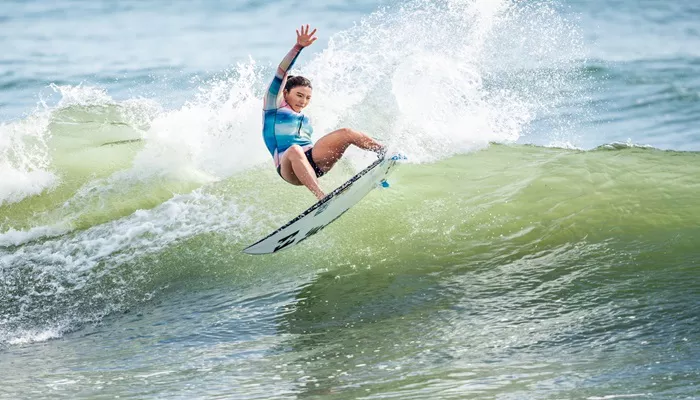Bristol, UK — At just 10 years old, Laura Crane told her school careers adviser she wanted to become a surfer. The adviser laughed and told her girls in the UK don’t surf. But Crane didn’t back down. “I am going to be a professional surfer,” she said confidently.
Now 30, Crane has kept her promise. She is a professional big wave surfer, riding waves over 20 feet high. She has taken on some of the biggest waves in the world, including 60-foot swells in Nazaré, Portugal.
But for Crane, one of her biggest challenges hasn’t been the size of the waves — it has been earning respect in a sport that long sidelined women and valued appearance over skill.
Crane, originally from Bristol, began surfing after her family moved to north Devon when she was seven. By age 12, she signed her first professional contract. At the time, she was full of excitement. She dreamed of surfing wild waves across the globe.
However, her first trip with sponsors was a rude awakening. “It became pretty clear I was just a bikini model,” she said. “It knocked my confidence.”
Crane said sexism was one of the biggest barriers she faced. “It made me feel like my only value was my appearance,” she said. “It was very hard to be seen as a real athlete.”
Women currently make up only 20% of surfers in the UK. But Crane is among a growing number of women working to change that.
One way this change is happening is through “Sister Sessions” at The Wave, an inland surf center near Bristol. The facility uses artificial waves and offers female-only sessions to help more women feel comfortable learning the sport. Seven such sessions are planned this year.
Jenny Jones, a former Olympic snowboarder who now surfs, said the sessions help build a sense of community. “It’s powerful being in the water with just women,” she said. “At first people are nervous, then they’re laughing and chatting. It helps you focus on getting better instead of feeling self-conscious.”
Crane believes things are changing for the better. “We’re seeing equal prize money,” she said. “More women are being recognized for their talent, not their looks. We’re finally seeing top athletes in the top spots — and that’s how it should be.”
Looking back, Crane remains proud of her journey. “Sometimes the world isn’t ready for you,” she said. “But you have to be the change it’s not ready to see.”

